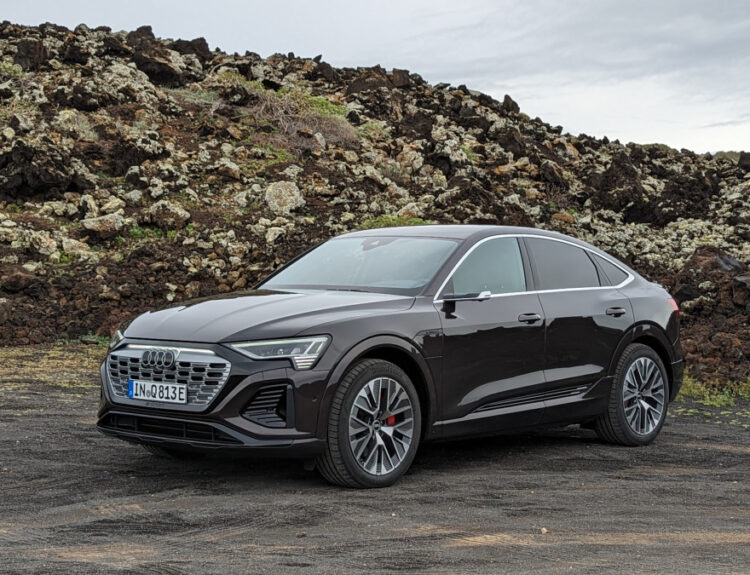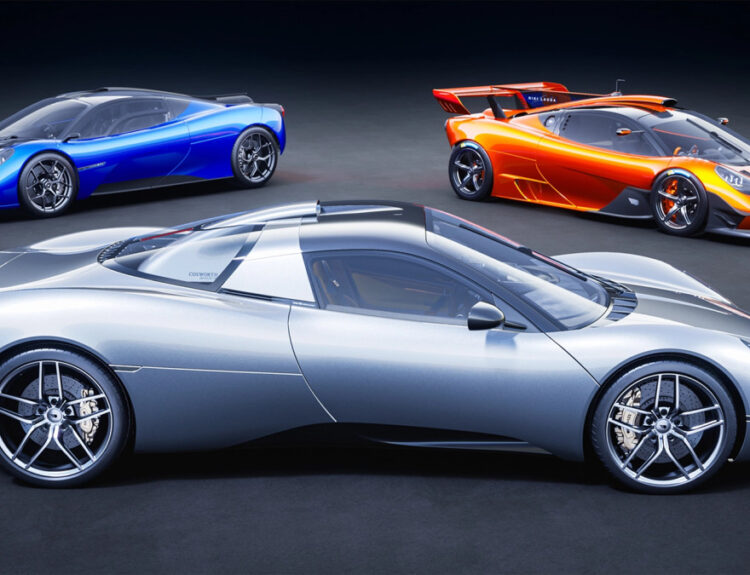
The Tesla Model Y has solidified its position as a formidable force in the automotive market, emerging as one of the leading sellers among all non-truck vehicles—electric and gasoline alike. The Model Y continues to lead the charge in 2024, trailing only behind the highly regarded Toyota RAV4 and Honda CR-V. For Tesla, this compact SUV has proven to be a significant asset under Elon Musk’s leadership.
Despite a slight decrease in sales in 2024 compared to its record performances in 2023 (with global sales of 1.7 million units for the Model 3 and 1.739 million for the Model Y), the latter saw a noteworthy price reduction of $6,000, making it an enticing option for potential buyers.
For those considering alternatives to the Tesla badge, there are several comparable electric vehicles on the market worthy of consideration. Here are four contenders that match the Model Y in both pricing and performance.
Related: Mitsubishi’s hidden gem: The Outlander, driving record sales in 2024
Top Alternatives to the Tesla Model Y for 2025
The Tesla Model Y is positioned as Tesla’s entry-level SUV, especially when compared to the luxury $80,000 Model X. The Performance All-Wheel Drive version begins at $51,490, yet the base model still offers a spacious and safe environment for families while boasting all-electric capabilities.
While the Model Y faces increasing competition, only a select few compact SUVs truly rival its price point and range. More affordable choices like the Nissan Ariya and Volkswagen ID. 4 fall short of achieving 300 miles of range, while premium options such as the Cadillac Lyriq and the Polestar 4 may compete with the Model Y’s Performance trim but struggle to match its overall family-friendly attributes.
Tesla Model Y Specifications:
- Starting Price: $44,990
- Range: Up to 337 miles
- Horsepower & Torque: 295 hp and 375 lb-ft
- Battery Size: 75 kWh
- Battery Efficiency: Up to 125 MPGe
Pros:
- Access to Tesla’s expansive Supercharger network with exceptional range
- Third-row seating option available for families
- Eligibility for a $7,500 federal tax credit (valid until January 20)
Cons:
- Interior can feel sparse and overly reliant on the central touchscreen.
- Autopilot and “Full Self-Driving” features exhibit significant shortcomings.
- No compatibility with Apple CarPlay or Android Auto—full immersion in Tesla’s ecosystem is necessary.
Related: Hyundai introduces free adapters for Tesla’s Supercharger network
1. 2025 Kia EV6
Kia’s EV6 has steadily carved out a niche as a standout electric SUV, showing impressive stamina. Early accolades in January revealed a remarkable sales milestone of 21,715 units in 2024, eclipsing 2023’s total of 18,879.
For 2025, the EV6 boasts a revised front end and an enhanced base model featuring a larger 63 kWh battery, optimizing both range and performance, particularly for the powerful 650 hp GT trim.
Pricing: $44,000 (estimated)
Range: Up to 361 miles
Horsepower & Torque: 330 hp (AWD) and 258 lb-ft
Battery Size: 63 and 85 kWh
Efficiency: Up to 117 MPGe
Pros:
- Remarkable range combined with rapid charging capabilities.
- Updated aesthetics and battery specifications for 2025.
- Enhanced tech features, including a 12.3-inch touchscreen.
Cons:
- The high-output GT variant significantly reduces range.
- The 2025 model will not be eligible for the federal tax credit but can be for the 2026 model year.
2. 2025 Ford Mustang Mach-E
Ford’s bold steps into the electric vehicle realm—beyond trucks like the F-150 Lightning—remain well-received, especially through the Mustang Mach-E SUV. Following a robust year, the Mach-E achieved a remarkable 27% sales growth in 2024 compared to the previous year.
The Mach-E line-up includes Select, Premium, GT, and Rally versions, each offering rear- or all-wheel-drive options. Battery sizes span from a standard 72 kWh to an extended-range 91 kWh.
Pricing: Starting at $36,495
Range: Up to 320 miles
Horsepower & Torque: 264 to 480 hp and 387 to 700 lb-ft
Battery Size: 72 and 91 kWh
Efficiency: Up to 98 MPGe
Pros:
- BlueCruise autonomous driving system excels in highway driving and lane changes.
- The GT and Rally trims offer breathtaking acceleration, achieving 0-60 mph in just 3.3 seconds.
- Base models remain under $40,000.
Cons:
- The lower-capacity standard battery may offer limited range.
- Top configurations can exceed $58,000.
3. 2025 Chevrolet Equinox EV
The Chevrolet Equinox EV is gaining traction after a year since its introduction. General Motors recently reported a commendable 4% increase in overall sales for 2024, driven majorly by electric vehicles, including the impactful Equinox EV, referred to as a significant contributor to this success.
Affordability is a hallmark of the Equinox EV, now starting below $35,000 while still delivering over 300 miles of range.
Pricing: Starting at $34,995
Range: Up to 319 miles
Horsepower & Torque: 213 to 288 hp and 236 to 333 lb-ft
Battery Size: 85 kWh
Efficiency: Up to 108 MPGe
Pros:
- Strong range performance at an attractive price point beneath $35,000.
- Generously sized 17.7-inch infotainment screen.
- Diverse option packages and exterior color choices.
Cons:
- Single motor variants offer less enthusiasm in driving dynamics and charging performance.
- Performance metrics lag behind the Model Y.
4. 2025 Hyundai Ioniq 5
Alongside its Kia counterpart, the Hyundai Ioniq 5 has reportedly made waves in the compact SUV arena. With a new sales record achieved early this month, Hyundai ascribed a 31% sales increase in 2024 to the burgeoning EV market. The Ioniq 5 draws attention not only for its design but also for its performance offerings, including the introduction of the high-performance N edition.
Pricing: Starting at $42,500
Range: Up to 318 miles
Horsepower & Torque: 168 to 320 hp (with 601 for the N) and 258 to 446 lb-ft (545 lb-ft for the N)
Battery Size: 63 and 85 kWh
Efficiency: Up to 110 MPGe
Pros:
- Enhanced battery options in 2025 (standard version upgraded from 58 kWh to 63 kWh).
- The new XRT trim enhances off-road capabilities.
- Mild refreshing of external elements and functional updates.
Cons:
- Partials of the full tax credit apply due to production in Georgia.
- Range may significantly decrease with XRT and AWD configurations.
Conclusion
The Tesla Model Y earns its status as a top seller for good reason. With an impressive combination of range, space, and safety features, it serves as a reliable family vehicle while delivering an exceptional driving experience inherent to electric vehicles with rewarding performance and a quiet ride.
For those wishing to step outside the Tesla ecosystem or who prefer a less minimalist design, the compact SUV landscape offers several alternatives, many of which are more budget-friendly. Nonetheless, Tesla continues to lead in battery efficiency and range, reinforcing the Model Y’s popularity as a market leader.
Related: The fascinating intersection of racing and surgery
Source:www.autoblog.com






